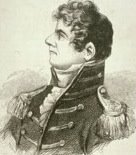
Lambeth Palace reports via the
Anglican News Service that the Archbishop of Canterbury, Dr Rowan Williams, has expressed his deep shock and sorrow at the appalling murder of Paulos Faraj Rahho, the Chaldean Archbishop of Mosul.
"Our prayers are daily with the people of Iraq, especially with the vulnerable Christian community, and particularly today with the Chaldeans and Archbishop Paulos' family," ++Rowan said.
As of this Friday, Christians from across Iraq have been attending the murdered archbishop's funeral, the
BBC reports.
Surrounded by armed guards, mourners wept and held flowers as the coffin was carried through the village of Kremlis, near Mosul in northern Iraq.
Christians are a tiny fraction of Iraq's population, but their religious sites and leaders have been targets of increasing violence since the US-led invasion of Iraq.
Chaldean is a form of Aramaic, spoken at the time of Jesus.
The Chaldeans, an Eastern-rite Church that recognizes the authority of the Pope, converted to Christianity in the first century A.D., and the Chaldean branch of Christianity has been in Iraq since then.
The Chaldean Church comprises the bulk of Iraq's remaining Christians, 2/3 of whom have fled or been displaced, since the U.S. invasion.
The archbishop's body was found in a shallow grave on Thursday, two weeks after he was kidnapped.
His abductors had telephoned the church authorities to say where he was.
The killing has been condemned by Pope Benedict XVI, the Iraqi Prime Minister, Nouri Maliki, and Iraq's Sunni and Shia leaders.
Archbishop Rahho was kidnapped after mass at the Church of the Holy Spirit in Mosul on 29 February. Three of his aides were killed in the abduction.
His kidnapping and murder came only months after another Chaldean priest and three subdeacons, were murdered outside the very same church from where the Archbishop was kidnapped.
Canon Andrew White, the only Anglican priest working in Baghdad, told the
Times of London that the Archbishop's death was "inevitable." Other leaders in the Church there fear that to survive in Iraq, Christianity will be driven underground.
"The fact is that since the surge in Baghdad, Al Qaeda has moved north to Mosul," Canon White told the Times. "What is more, we know that they are very short of money, and that they hate Christians. A huge sum was asked for, but the church could not pay it. Sadly it was therefore inevitable that the Archbishop would be killed.
"This killing shows the very real danger faced by Christians in Iraq. This awful event happened in the very heartland of Iraqi Christianity in Nineveh. We are in tears—we are devasted. We are not giving up our faith in Jesus and I am not leaving this beloved land of Iraq."
O God, whose mercies cannot be numbered: Accept our
prayers on behalf of your servant, and grant him an
entrance into the land of light and joy, in the fellowship of
your saints; through Jesus Christ our Lord, who lives and
reigns with you and the Holy Spirit, one God, now and for
ever. Amen.
 Since no entries were made to the website for a short period this past winter, several readers wrote to inquire as to my whereabouts, and as to the status of the site.
Since no entries were made to the website for a short period this past winter, several readers wrote to inquire as to my whereabouts, and as to the status of the site.








